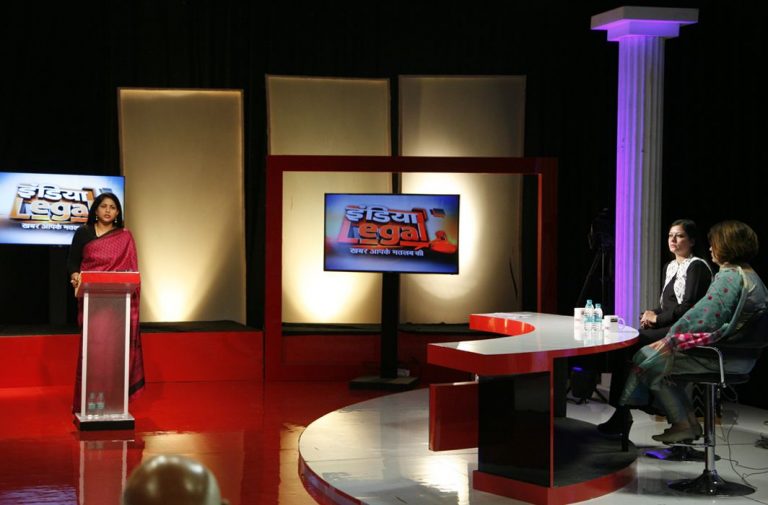
Above: Photo Courtesy Anil Shakya
The latest India Legal show deliberated on the current scenario of the acid attacks in India. The show talked to a cross section people such as social activists, NGOs etc. involved in rehabilitation of acid attack victims, clinical psychologists, government officials involved in rehabilitation of acid attack victims, former judges, acid attack victims etc and took their views.
Rajshri Rai, Editor-in-Chief, APN anchored the show. The show panellists included:
- Justice A N Mittal, Chairman, UP Law Commission
- Justice Bhavar Singh, former judge, Allahabad High Court
- Justice A K Tripathi, former judge, Allahabad High Court
- Dr M K Johar, Director, Max Hospital
- Gunjan Sharma, Member, Shaurya Achievers Society
- Arun Sahni, Member, Shaurya Achievers Society
- Dr Aashima Srivastava, Clinical Psychologist, Max Hospital
- Sadhna Singh, Deputy ASP, Mahila Samman Prakoshtha
- Anuja Trehan Kapur, Psychologist and social activist
Rai started the debate by asking Srivastava on the psychological condition on the persons who indulge in acid attacks.
Srivastava replied: “The attackers are the anti-social personalities. These persons witness violence right from the childhood to the adulthood. These attackers lack emotional content and are highly impulsive. If they face refusal from the woman they love, they take it as a defeat. In these kinds of people, there is lack of guilt and remorse. They act according to their impulses.”
Justice Singh stressed upon the fact that police should be sensitized to handle the acid attack cases empathically. He said: “The police role should be beefed up. The responsibility of the police in such cases is to take victim first to the hospital. Then police should ensure that report should be registered in the police station. The police should also ensure that the accused should be arrested. The victim’s family should be informed.
“So the police should be sensitized first. The police should play the role of guardian first. So we should make a law for the police demarcating as what responsibilities they should follow while handling the acid attack cases.”
Sharing the same sentiments, Kapur said: “When we see these kind of problems, we ascertain that police should be sensitized against acid attack victims. Police usually don’t show empathy while dealing with acid attack victims. There is a dire need for police reforms. Education and gender sensitization is also very much needed so that these kind of situation be dealt with sensitivity. Police themselves need counseling as how they should contribute in rehabilitating the acid attack victims.”
Justice Mittal pointed out the role of compensation in acid attack victims’ rehabilitation. He said: “The acid attack cases need special supervision. As far as compensation is concerned, court can facilitate it by telling the accused to compensate the victim. And if court finds that the accused doesn’t have the capacity to pay the fixed amount i.e Rs 3 lakhs, then it can also direct the state government to bear the expenses for the hospitalization of the victims. Courts have got that power.”
Justice Tripathi also shed light on the aspect of compensation meted out to the acid attack victims. He said: “The criminal amendment act, 2013 was amended and the two sections were added to it — 326A and 326B. In 326A, the minimum punishment was 10 years. In 326B, the minimum punishment was 5 years with fine. There is also a provision that the fine would also be given to victims. There is also a provision of Section 357 that a court can use. In this, the court can slap compensation on the accused even if he gets bail or discharged.”
—India Legal Bureau

